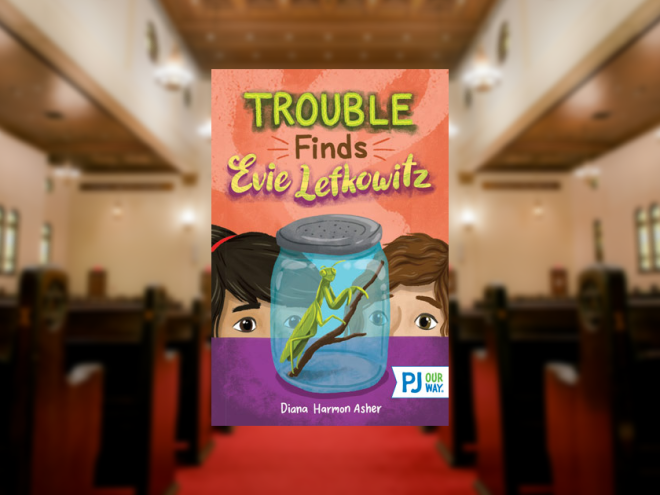If you have forgotten the traumas of middle school, as well as the plot and score of The Music Man, then Upstaged is the book for you. Diana Harmon Asher’s funny and engaging novel follows Shira Gordon, a talented seventh grader cast in her school’s production of the well-loved musical, as she learns about courage and self-acceptance. Thoroughly believable characters and authentic theatrical details set Shira’s story apart from similar middle-grade fare. With mean girls and pushy stage moms, as well as talented kids caught up in the excitement of putting on a show, readers will be on the edge of their seats.
Shira is quiet and shy. She is also introspective but, like anyone her age, sometimes has trouble reconciling the contradictions of her personality. When her music teacher, Mr. Hoover, encourages everyone to try out for the school play, Shira feels torn. No one in school ever seems to notice her and, some of the time, that invisibility feels safe. Yet she is also musically talented and has the gift of empathizing with a character to enhance her performance. When Mr. Hoover casts her as a member of the barbershop quartet, it is a recognition of her incredible vocal skills. He explains that “trouser roles,” where females play male parts, are a time-honored tradition, but this assurance does little to protect her from the nasty teasing that she confronts. Hedgebrook Middle School has a typical mix of students; some are insecure and cruel, but others are warm and empathetic. The author’s descriptions never slip into caricature.
Shira’s nemesis is Monica Manley, the girl cast as Marian the Librarian, the lead female role. She and her mother have convinced the entire school that she is Broadway bound, but she has none of the sensitivity or intuition that grace Shira’s performance. Secondary characters fill out the narrative, each one adding different dimensions to this coming-of-age story. Shira’s supportive friend, Cassie, and Paul García, who performs the lead role of Professor Harold Hill, also deal with their own dilemmas, but all of them have time to help one another. The narrative is fast-paced with attempted sabotage of the show, a mysterious and somewhat inept director, and some potential romance.
Shira is Jewish, although the only explicit references to her heritage involve a bar mitzvah party, accurately presented as an over-the-top and stressful experience. Asher captures the nature of this life-cycle event, describing invitations that spread glitter on the floor when opened, an excessive amount of food, and headache-inducing music. The scene is also the setting for Shira to interact with other students and to learn that she is not alone in feeling anxious. One of the most refreshing aspects of the book is that the author does not pathologize Shira’s shyness, interpreting it as part of her personality, not a disorder to be overcome. In fact, this core part of who she is allows Shira to identify with the equally shy Marian, and to understand that successful acting involves inhabiting the role she plays. Finally, that role is Shira Gordon herself.
This highly recommended book includes the list of songs from The Music Man that arequoted in the novel.
Emily Schneider writes about literature, feminism, and culture for Tablet, The Forward, The Horn Book, and other publications, and writes about children’s books on her blog. She has a Ph.D. in Romance Languages and Literatures.





